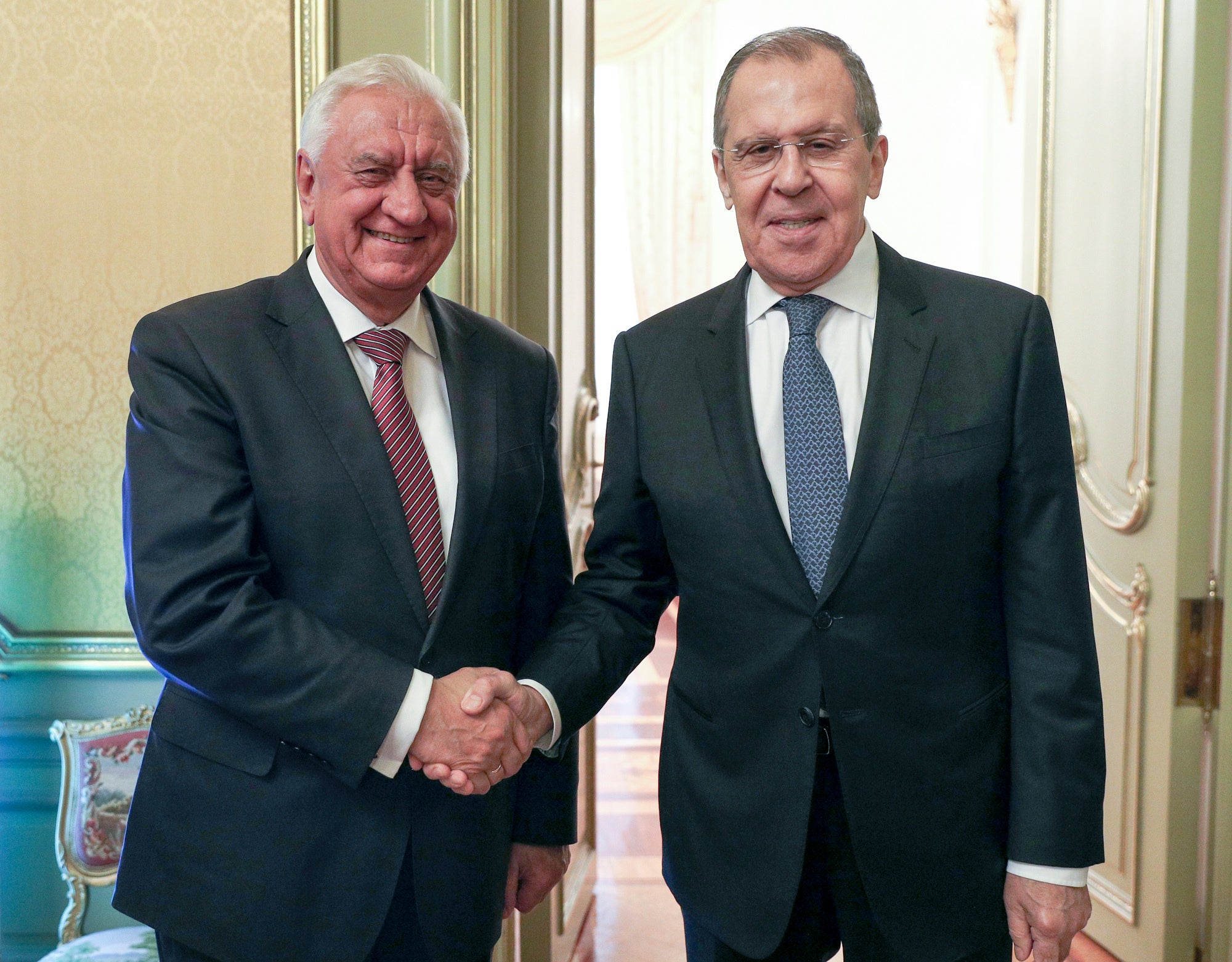Russia's FM laments sanctions at UN amid tension with West
Russia’s foreign minister has complained about countries using sanctions to meddle in the domestic affairs of other nations

Your support helps us to tell the story
From reproductive rights to climate change to Big Tech, The Independent is on the ground when the story is developing. Whether it's investigating the financials of Elon Musk's pro-Trump PAC or producing our latest documentary, 'The A Word', which shines a light on the American women fighting for reproductive rights, we know how important it is to parse out the facts from the messaging.
At such a critical moment in US history, we need reporters on the ground. Your donation allows us to keep sending journalists to speak to both sides of the story.
The Independent is trusted by Americans across the entire political spectrum. And unlike many other quality news outlets, we choose not to lock Americans out of our reporting and analysis with paywalls. We believe quality journalism should be available to everyone, paid for by those who can afford it.
Your support makes all the difference.Russia’s foreign minister complained about countries using sanctions to meddle in the domestic affairs of other nations, telling the U.N. General Assembly that such penalties hamper an effective worldwide response to issues such as the coronavirus pandemic, climate change, military conflicts and international terrorism.
In a speech delivered when it was early Tuesday in Moscow but still Monday in New York, Russian Foreign Minister Sergey Lavrov said the attempts by some countries to “meddle in the domestic affairs of other states, using unilateral sanctions” interfere with addressing “challenging threats the world is facing today.”
“We believe that this is largely attributed to the fact that some countries are not willing to account for the legitimate interests of other states," Lavrov said in a speech on behalf of the Collective Security Treaty Organization, which consists of Russia, Belarus, Armenia, Kazakhstan, Kyrgyzstan and Tajikistan.
“They are seeking to impose concepts and standards like the ‘rules-based world order’ while attempting to meddle in the domestic affairs of other states, using unilateral sanctions in violation of the U.N. Security Council prerogatives, and exhibiting intolerance and hatred," the minister charged.
Lavrov's speech came amid tensions between Russia and the West over Kremlin critic Alexei Navalny, who is being treated in Berlin for what German authorities said was a nerve agent poisoning, and as the European Union ponders imposing sanctions over Belarus' disputed presidential election and crackdowns on protesters.
German Chancellor Angela Merkel called Navalny’s poisoning an attempted murder that was intended to silence Russian President Vladimir Putin’s most prominent foe. Merkel's office indicated that she may be willing to rethink the Nord Stream 2 pipeline project, which would bring Russian gas to Germany under the Baltic Sea.
Russia also drew international criticism for approving a COVID-19 vaccine after testing it on just several dozen people. Putin, who is scheduled to address the U.N. General Assembly later Tuesday, touted the vaccine on national television and said that one of his adult daughters had already been inoculated. However, both Russian and Western experts insisted that further studies were necessary to determine its effectiveness and safety.
Lavrov, in his speech, called for unity and urged countries to reaffirm their commitment to the U.N. charter and international law, saying that “the world is tired of dividing lines, of separating states into friends and foes.”
“We once again, like in 1945, need to cast the differences aside and unite in the name of solving common problems, backed by equal dialogue and mutual respect for (each other's) interests,” the Russian minister concluded.
European Union foreign ministers failed to agree Monday on imposing sanctions on Belarusian officials suspected of election fraud or of playing a part in a six-week security crackdown. However, EU foreign policy chief Josep Borrell said there was “clear will to adopt those sanctions.”